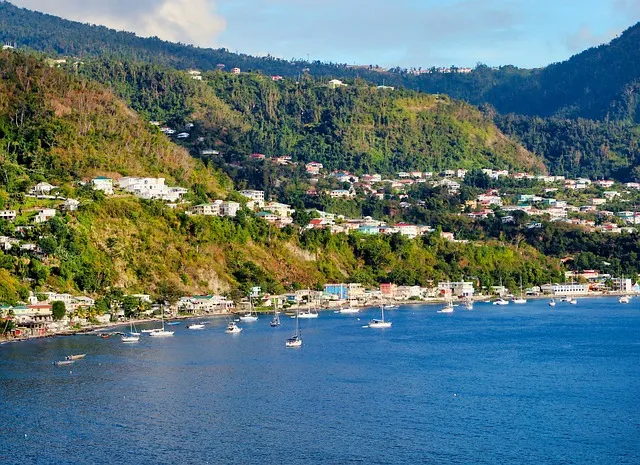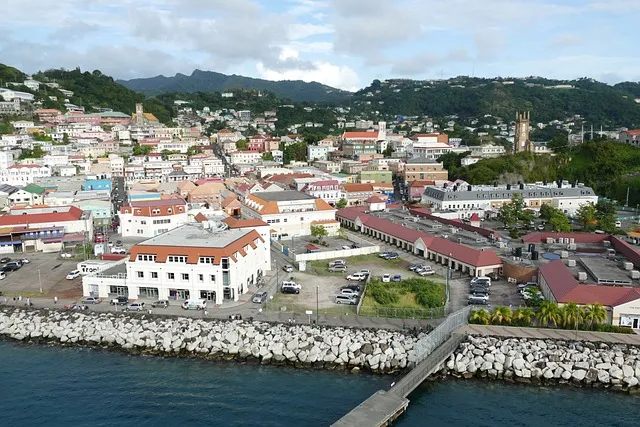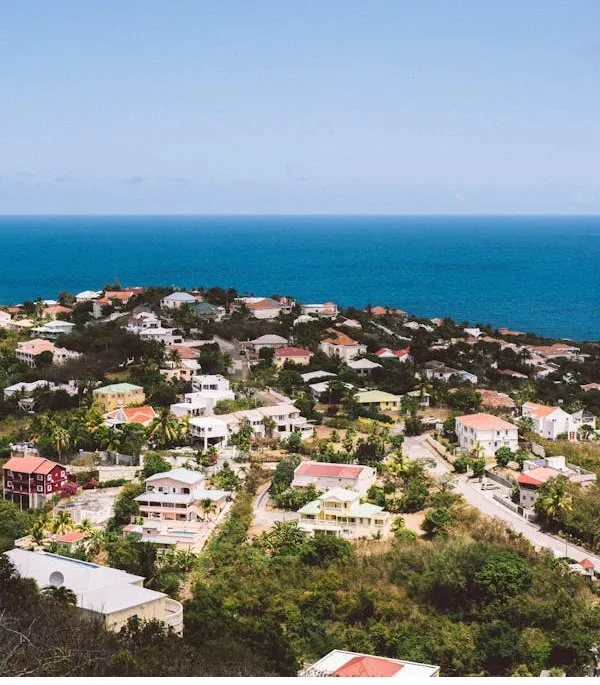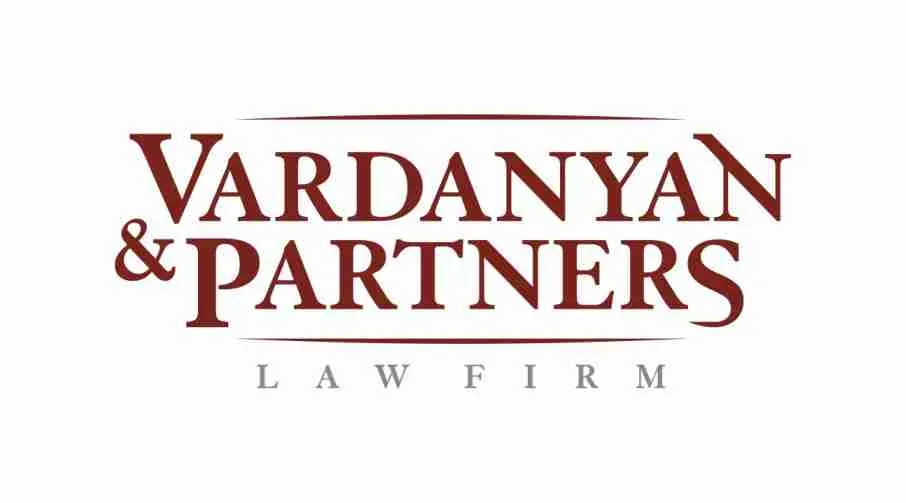Caribbean citizenship program and other Citizenship by Investment (CBI) programs offer individuals the opportunity to obtain citizenship in a country by making a significant economic investment, typically in the form of a donation to a government fund, real estate purchase, or business investment.
These programs are particularly popular in smaller nations seeking to attract foreign capital to boost their economies. In return for their investment, applicants and their families can gain the benefits of citizenship, including visa-free travel to a wide range of countries, tax advantages, and the ability to live, work, and study in the host nation.
Types of Caribbean Citizenship Programs
The Caribbean region is known for its well-established citizenship programs, offering competitive and flexible options for global investors. The given programs, offered by Antigua and Barbuda, Dominica, Grenada, St. Kitts and Nevis, and St. Lucia, present diverse opportunities for global investors seeking second citizenship. While sharing a common goal of attracting foreign investment, they differ significantly in their investment thresholds, benefits, and requirements.
Dominica stands out as the most cost-effective option, with the lowest entry point, making it accessible to a broad range of investors. Grenada and St. Lucia follow with slightly higher minimum investments, but they offer additional unique benefits. Grenada’s program is particularly attractive due to its E-2 visa treaty with the United States, which provides a pathway for business opportunities in the US. St. Lucia’s program offers diverse investment options, including government bonds, appealing to those seeking flexibility and security.
Antigua and Barbuda, while having higher investment thresholds, offer a variety of investment routes that cater to different preferences, including a unique option tailored for larger families. However, its higher costs for business investments and real estate might deter some.
St. Kitts and Nevis, known for its strong passport and premium status, has the highest investment thresholds, particularly for real estate, reflecting the program’s established reputation and value.
In terms of residency requirements, all programs are relatively relaxed, with most not requiring any physical presence. Antigua and Barbuda, however, require a minimal stay of five days within the first five years, which is modest and manageable for most investors.
Overall, while all Caribbean CBI programs allow for the inclusion of immediate family members, Antigua and Barbuda, Dominica, and Grenada offer the most flexibility in terms of extended family eligibility. Investors with larger or more complex family structures may find these programs particularly appealing, while those with specific needs related to elderly parents or older children may favor the options provided by St. Kitts and Nevis or St. Lucia.
Program Comparison Table
Criteria | Antigua and Barbuda | Dominica | Grenada | St. Kitts and Nevis | St. Lucia |
|---|---|---|---|---|---|
Investment Options | Donation to National Development Fund / Real Estate Investment / Contribution to University Fund / Business Investment | Contribution to Economic Diversification Fund / Real Estate Purchase | National Transformation Fund / Donation / Real Estate Purchase | Sustainable Island State Contribution / Approved Public Benefit Project / Real Estate Acquisition | National Economic Fund Contribution / Enterprise/Project Investment / Real Estate Purchase / Government Bonds |
Minimum Investment | $230,000 (donation) / $300,000 (real estate) / $260,000 (University Fund) $1.5 million (business) | $200,000 (single) / $250,000 (family up to 4) / Additional fees for larger families | $235,000 (donation) / $270,000 (real estate) | $250,000 (donation) / $400,000 (real estate) | $240,000 (donation) / $250,000 (enterprise) / $300,000 (real estate) / $300,000 (bonds) |
Eligible Family Members | Spouse, children under 30, dependent parents/grandparents (55+), unmarried siblings. Additional family members can be added post-citizenship. | Spouse, children under 18, adult children (18-30) financially dependent, parents/grandparents (no age limit), siblings (under 18 or 18-25 if dependent). | Spouse, children under 18, financially dependent children (18-29), dependent parents/grandparents, unmarried siblings (18+) | Spouse, children under 18, children (18-29) financially dependent, parents (65+) living with the applicant. | Spouse, children under 30, financially dependent parents (55+), unmarried siblings (under 18). |
Processing Time | 3-6 months | 3-6 months | 3-6 months | 3-6 months | 3-6 months |
Residency Require | 5 days within the first 5 years | No residency requirement | No residency requirement | No residency requirement | No residency requirement |
Unique Benefits | Flexible investment options, most suitable for big families. Offers the only Caribbean citizenship program specifically designed for large families. | Most affordable entry point for citizenship | E-2 visa treaty with the US, business opportunities | Strong passport, access to 158 countries | Diverse investment options, including government bonds |
Visa-Free Travel or Visa on Arrival Access
Antigua and Barbuda | 150 countries, including Albania, Brazil, Chile, China, Lebanon, Macedonia, Seychelles, South Africa, South Korea, Tunisia, UK |
Dominica | 137 countries, including Brazil, Israel, Seychelles, South Korea, Uruguay |
Grenada | 145 countries, including Argentina, Brazil, Chile, China, Israel, Russia, Seychelles, South Korea, UK, Uruguay |
St. Kitts and Nevis | 158 countries, including Albania, Argentina, Brazil, Chile, Israel, Lebanon, Macedonia, Russia, Tunisia, UK, Uruguay |
St. Lucia | 148 countries, including Argentina, Chile, Israel, Seychelles, South Korea, Tunisia, UK |
Benefits of Caribbean Citizenship
Caribbean citizenship offers numerous benefits to individuals and families seeking a second passport. These benefits include enhanced global mobility, favorable tax regimes, and access to a high-quality lifestyle in some of the world’s most beautiful tropical settings. Caribbean countries offer citizenship through well-established investment programs, making it an attractive option for those looking to diversify their assets and secure a better future for their families.
Fast Obtaining
Caribbean citizenship by investment programs are renowned for their fast processing times. In as little as six months, applicants can obtain a second passport, making it an attractive option for those seeking to expand their global mobility quickly. The speed of obtaining Caribbean citizenship is unmatched by other citizenship by investment programs, making it an ideal choice for individuals with urgent travel needs or those looking to capitalize on new opportunities swiftly.
Comparatively Low Expenses
The minimum investment required for Caribbean citizenship by investment programs is relatively low compared to other global programs. With a minimum investment of $200,000, applicants can obtain a second passport and enjoy the numerous benefits of Caribbean citizenship. This affordability makes it an accessible option for individuals and families seeking to diversify their assets, protect their wealth, and gain the advantages of a second citizenship without a significant financial burden.
Remote Procedures
One of the significant advantages of Caribbean citizenship by investment programs is the ability to complete the application process remotely. Applicants do not need to physically visit the country to obtain citizenship, making it a convenient option for those with busy schedules or travel restrictions. The entire process, from submission of documents to receiving the passport, can be completed remotely, allowing applicants to obtain citizenship from the comfort of their own home.
140+ Visa-Free Destinations
A Caribbean passport offers visa-free travel to over 140 countries, including key destinations such as the Schengen Area, the UK (except for Dominica), China (except for St. Kitts and Nevis and St. Lucia), and Singapore. This extensive visa-free access makes it an attractive option for individuals and families seeking to expand their global mobility and travel freely. With a Caribbean passport, applicants can enjoy the convenience of visa-free travel to some of the world’s most popular and important destinations, enhancing their personal and professional opportunities.
US Visas for 10 Years
Caribbean passport holders can obtain a US tourist visa in just 2-3 weeks, which is valid for 10 years. This makes it an attractive option for individuals and families seeking to travel to the US for business or leisure. The ability to secure a long-term US visa adds significant value to the benefits of Caribbean citizenship, offering applicants increased mobility and flexibility for travel to one of the world’s most sought-after destinations.
Overview of Caribbean CBI Programs
Caribbean CBI programs offer a range of compelling benefits that attract global investors looking to obtain Caribbean citizenship. One of the most notable advantages is visa-free or visa-on-arrival access to a broad array of countries, including key destinations in Europe, Asia, and the Americas. This ease of international mobility is particularly valuable for those seeking to expand their global presence or enjoy unrestricted travel.
In addition to travel benefits, Caribbean CBI programs often provide favorable tax regimes, with many countries offering low or no taxes on income, wealth, capital gains, and inheritance.
Lifestyle benefits also play a significant role in the appeal of Caribbean CBI programs. Investors gain access to a relaxed, high-quality lifestyle in some of the world’s most beautiful tropical settings. These countries boast stable political environments, welcoming communities, and a range of luxury amenities, from beachfront properties to private island resorts. The combination of these benefits makes Caribbean CBI programs a desirable option for individuals and families looking to enhance their global status and enjoy a better quality of life.
Caribbean Citizenship by Investment (CBI) programs typically require applicants to meet specific criteria: being at least 18 years old, having a clean criminal record, and making a qualifying investment ranging from $200,000 to $400,000, depending on the country and investment type. Investment options include purchasing real estate, contributing to a government fund, or investing in approved enterprise projects.
The application process begins with a consultation with a licensed agent who advises on suitable investment options and prepares a detailed quotation. Applicants must then submit necessary documents, such as passport copies, proof of address, followed by a due diligence background check. Once cleared, the formal application is submitted to the relevant Citizenship by Investment Unit (CIU), and the investment amount is typically paid after receiving approval in principle.
Upon approval, applicants receive a citizenship confirmation letter, and after completing the final payment, a passport is issued within a few weeks. Some programs, such as those in Antigua and Barbuda, Dominica, and St. Kitts and Nevis, may require mandatory interviews for applicants and dependents aged 16 and older to ensure the integrity of the application process.
Antigua and Barbuda

Program Details
Antigua and Barbuda's Citizenship by Investment (CBI) program offers several investment options. The most affordable option is a donation to the National Development Fund. Other choices include investing in real estate, contributing to the University of the West Indies Fund—an option tailored for families of six—and making a business investment.
To apply, the main applicant must be over 18, have no criminal record, prove legal income, and be free of serious illnesses. The Antigua and Barbuda Citizenship by Investment (CBI) program allows the main applicant to include a spouse, children under 30, dependent parents or grandparents aged 55 or older, and unmarried siblings of the applicant or spouse. Additional family members can be added post-citizenship, including a future spouse and children, with applicable fees.
Required documents are submitted through a licensed agent to the Citizenship by Investment Unit (CIU), along with application, due diligence, passport, and interview fees. The program now requires mandatory interviews for the principal applicant and children. The process takes about 3-4 months, and citizens must reside in Antigua and Barbuda for at least 5 days within the first 5 years to maintain dual citizenship.
New Prices
Starting from July of 2024, all five Caribbean countries updated their eligibility prices for Citizenship by Investment (CBI) programs. However, Antigua and Barbuda delayed implementing these changes until August.
The new investment thresholds for Antigua and Barbuda are as follows: a $230,000 donation to the National Development Fund, a $300,000 real estate investment, a $260,000 contribution to the University of the West Indies Fund, and a $1.5 million business investment for sole investors, with group investments set at $400,000 per investor.
Dominica

Program Details
Dominica's Citizenship by Investment (CBI) program offers two primary investment options:
Non-Refundable Contribution: Investors contribute to the Economic Diversification Fund, starting at $200,000 for a single applicant. For a family of up to four, the contribution is $250,000, and for larger families, it's an additional $25,000 per member under 18 and $40,000 per member over 18.
Real Estate Purchase: Investors can buy shares in government-approved properties starting at $200,000. This investment must be held for a minimum of three years, or five years if the property is to be sold to another CBI applicant.
The application process for Dominica's CBI program involves preparing and submitting a comprehensive set of documents, including passports and financial records. Applications can be submitted remotely and undergo background checks and due diligence. Upon approval, applicants receive a Certificate of Naturalization. If the real estate investment option was chosen, applicants must comply with property holding requirements after obtaining citizenship.
Eligible family members for Dominica's CBI program include the main applicant's legally registered spouse, children under 18, adult children aged 18-30 who are financially dependent, and physically or mentally challenged children over 18.
Parents and grandparents can also be included without an age limit if they are financially dependent on the applicant. Siblings, whether biological or adopted, under 18, or aged 18-25 if financially dependent, are also eligible.
Post-citizenship, additional family members such as newborn or adopted children, spouses, and other pre-existing dependents who qualified at the time of the original application can be added.
The program offers one of the most affordable entry points for citizenship, making it accessible compared to other CBI programs.
Grenada

Program Details
Grenada's Citizenship by Investment (CBI) program offers two investment options:
National Transformation Fund (NTF) Donation: A non-refundable contribution of at least $235,000 for a single applicant or a family of up to four.
Real Estate Purchase: A minimum investment of $270,000 in a government-approved real estate project, plus an additional $50,000 non-refundable contribution. The property must be held for five years if resold as a qualifying investment to another CBI investor, but it can be sold at any time otherwise.
Eligible family members for inclusion in the application are the spouse, children under 18, financially dependent children aged 18-29, dependent parents or grandparents, and unmarried siblings of the main applicant or spouse aged 18 and older.
To apply for Grenada's Citizenship by Investment program, applicants must choose an Authorized International Marketing Agent, as direct submissions are not accepted. They need to prepare and submit documents including a valid passport, medical certificate, proof of investment, a clean criminal record, and birth and marriage or divorce certificates through the chosen agent to the Grenada CBI Unit. The unit will perform a due diligence check on the applicant and family members aged 16 and over. The process typically takes 3 to 6 months. After approval, the applicant must fulfill the investment requirement, either through a contribution or real estate purchase.
Grenada stands out by offering an E-2 visa treaty with the US, making it an attractive option for those seeking business opportunities in the United States.
St. Kitts and Nevis

Program Details
To qualify for citizenship in St. Kitts and Nevis, applicants must be over 18, meet specific requirements, and choose one of the following investment options:
Sustainable Island State Contribution (SISC): A non-refundable contribution of $250,000 for the main applicant and up to three dependents. Additional dependents over 18 require an extra $50,000, while those under 18 require $25,000 each.
Approved Public Benefit Project: A minimum non-refundable contribution of $250,000 to a public benefit unit within an approved project.
Real Estate Acquisition: A minimum real estate investment of $400,000 in an approved development, $400,000 for a condominium unit, or $800,000 for a single-family private dwelling. The property can be resold after seven years under certain conditions.
Eligible family members for St. Kitts and Nevis' citizenship program include the spouse, provided they have no criminal record. Children under 18 must be unmarried and fully financially dependent on the main applicant. Children aged 18 to 29 must also be unmarried, enrolled full-time in a recognized institution, and financially dependent on the main applicant. Parents over 65 must live with and be fully supported by the main applicant.
To apply for St. Kitts and Nevis citizenship, applicants select one of the investment options, gather necessary documents, and submit their application with fees. They then attend a mandatory interview conducted by an independent firm or CIU officials. Once approved, they receive a certificate of registration. The process usually takes about six months.
St. Kitts and Nevis offers one of the strongest passports, providing access to 158 countries.
St. Lucia

Program Details
St. Lucia's Citizenship by Investment program offers several options:
National Economic Fund Contribution: A non-refundable donation of $240,000 covers the main applicant and up to three dependents. Additional contributions of $20,000 per dependent aged 18 or older and $10,000 per dependent under 18 apply.
Enterprise or Project Investment: An investment of $250,000 in an approved enterprise or project, plus administrative fees, covers the main applicant and up to three dependents.
Real Estate Purchase: A minimum investment of $300,000 in approved real estate development is required. The property must be held for at least five years.
Government Bonds: An investment of $300,000 in non-interest-bearing government bonds, plus a $50,000 administrative fee, must be held for a minimum of five years.
Applicants can include their spouse, unmarried children under 30, financially dependent parents over 55, and unmarried siblings under 18 (with parental or guardian consent).
All included family members must meet the same criteria as the main applicant, such as having a clean criminal record and passing due diligence checks. Dependent children must be under 30 at the time of application, parents over 55 must be financially dependent on the main applicant, and siblings under 18 need parental or legal guardian consent. St. Lucia's program allows obtaining citizenship for the entire family through a single investment, making it a family-friendly option.
To apply, candidates must work with a licensed government-approved agent who will guide them through the process. The agent helps gather and submit all necessary documents, such as identification, proof of financial stability, police clearance, medical exams, and investment evidence. They also handle the submission of the application and payment of fees.
The Citizenship by Investment Unit then conducts thorough background checks. If the application is approved, the candidate receives a Letter of Approval and must complete their investment within 21 days. Once the investment is confirmed, they receive a Certificate of Naturalization and can obtain their St. Lucia passport.
St. Lucia stands out with its government bond investment option.
Comparative Analysis
When comparing the Citizenship by Investment (CBI) programs of Antigua and Barbuda, Dominica, Grenada, St. Kitts and Nevis, and St. Lucia, several key factors stand out, particularly in terms of investment thresholds, benefits, drawbacks, and residency requirements.
Minimum Investment Thresholds
The thresholds across the Caribbean CBI programs vary significantly. Dominica offers the most affordable entry, with a minimum non-refundable contribution of $200,000 for a single applicant, making it a highly cost-effective option.
Grenada and St. Lucia follow with slightly higher minimum investments: Grenada requires at least $235,000 for a donation to the National Transformation Fund, and St. Lucia demands $240,000 for its National Economic Fund Contribution.
Antigua and Barbuda's investment thresholds are somewhat higher, with a minimum donation of $230,000 to the National Development Fund and $300,000 for real estate. But at the same time Antigua and Barbuda also offers the option to donate $260,000 to the University of West Indies Fund, making it cost effective for families of 6 or more.
St. Kitts and Nevis has the highest entry point, especially for real estate investments, with a minimum requirement of $400,000 for condominiums and $800,000 for private dwellings. This higher cost is reflective of the program's strong passport and high value.
Real Estate Investment: Cost-effectiveness and Value for Money
Dominica's program stands out due to its low entry costs, making it accessible for a broad range of investors. However, its real estate option requires a property to be held for three to five years, which may not suit those seeking liquidity.
Grenada and St. Lucia offer additional benefits that enhance their value. Grenada's inclusion of the E-2 visa treaty with the US provides significant added value for investors seeking business opportunities in the US. St. Lucia's range of investment options, including government bonds, offers flexibility and security, though at a higher overall cost compared to Dominica.
Antigua and Barbuda's program, while more expensive than Dominica's, provides multiple investment routes, which can be advantageous for investors with different preferences.
St. Kitts and Nevis, with its high investment thresholds, offers a premium passport and established reputation, making it a strong contender despite its higher costs.
Residency and Physical Presence Requirements
All five countries offer relatively relaxed conditions. Dominica, Grenada, St. Kitts and Nevis, and St. Lucia do not impose mandatory residency requirements, allowing investors to maintain citizenship without needing to reside in the country.
Antigua and Barbuda requires a minimal physical presence of just five days within the first five years, which is relatively modest compared to other programs. This makes Antigua and Barbuda's program particularly appealing for those looking for a low-maintenance residency obligation.
In summary, the Citizenship by Investment (CBI) programs of Antigua and Barbuda, Dominica, Grenada, St. Kitts and Nevis, and St. Lucia offer a range of options tailored to different investor needs and budgets.
Dominica stands out for its affordability, with the lowest entry costs, though it has specific holding requirements for real estate investments. Grenada offers the added benefit of the E-2 visa treaty with the US, enhancing its attractiveness for investors interested in US business opportunities. St. Lucia provides flexible investment choices, including government bonds, but at a higher overall cost compared to Dominica.
Antigua and Barbuda, while having higher investment thresholds, offer multiple investment routes and a low residency requirement, making it appealing for those seeking flexibility. St. Kitts and Nevis, with its premium passport and established reputation, commands higher investment levels but delivers significant value in terms of international mobility and status.
As we look to the future, the Caribbean CBI programs are likely to continue evolving in response to global economic shifts and investor preferences. With increasing competition and the need for economic diversification, we may see further adjustments in investment thresholds and program benefits.

Lusine Sargsyan
Attorney
